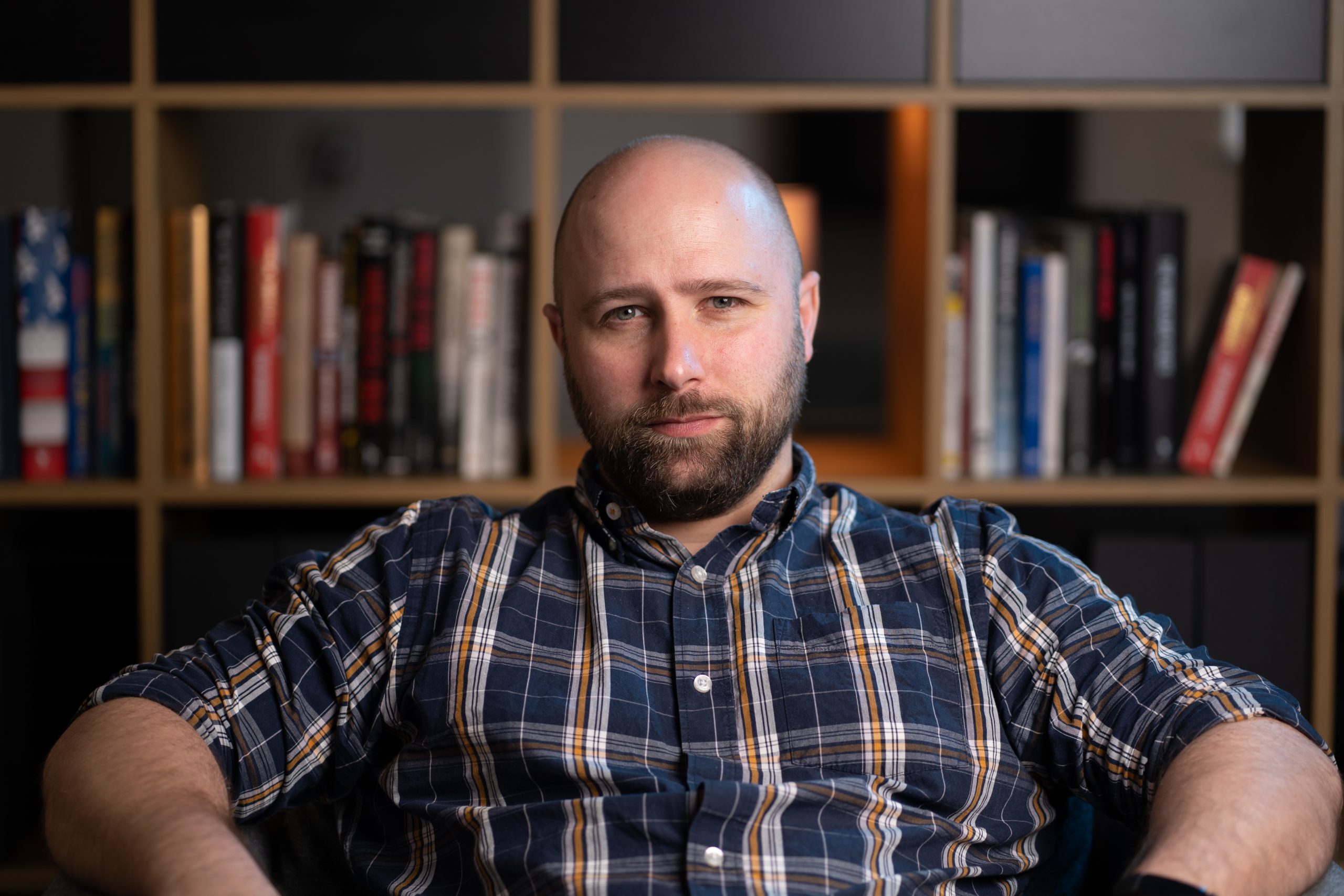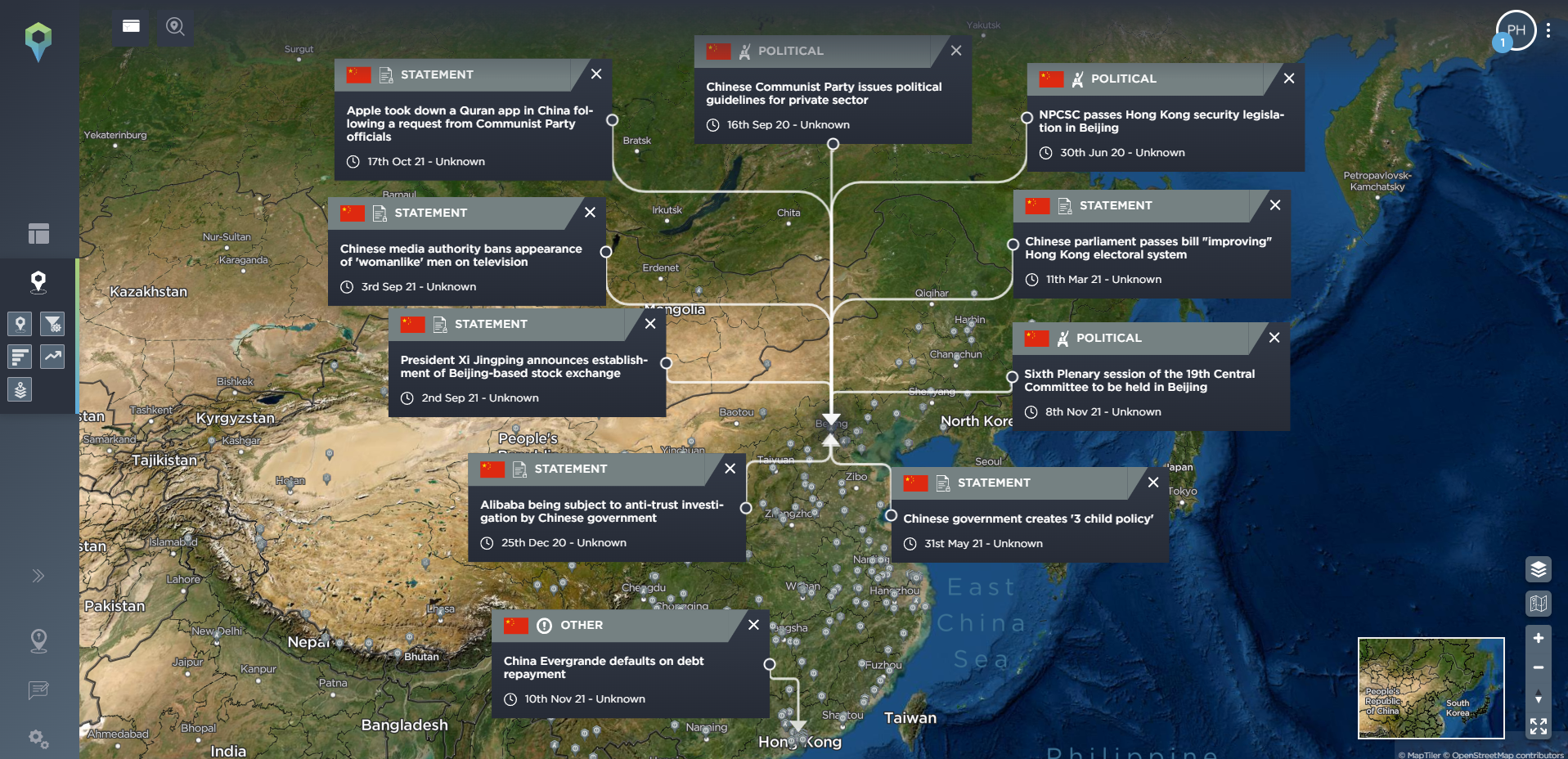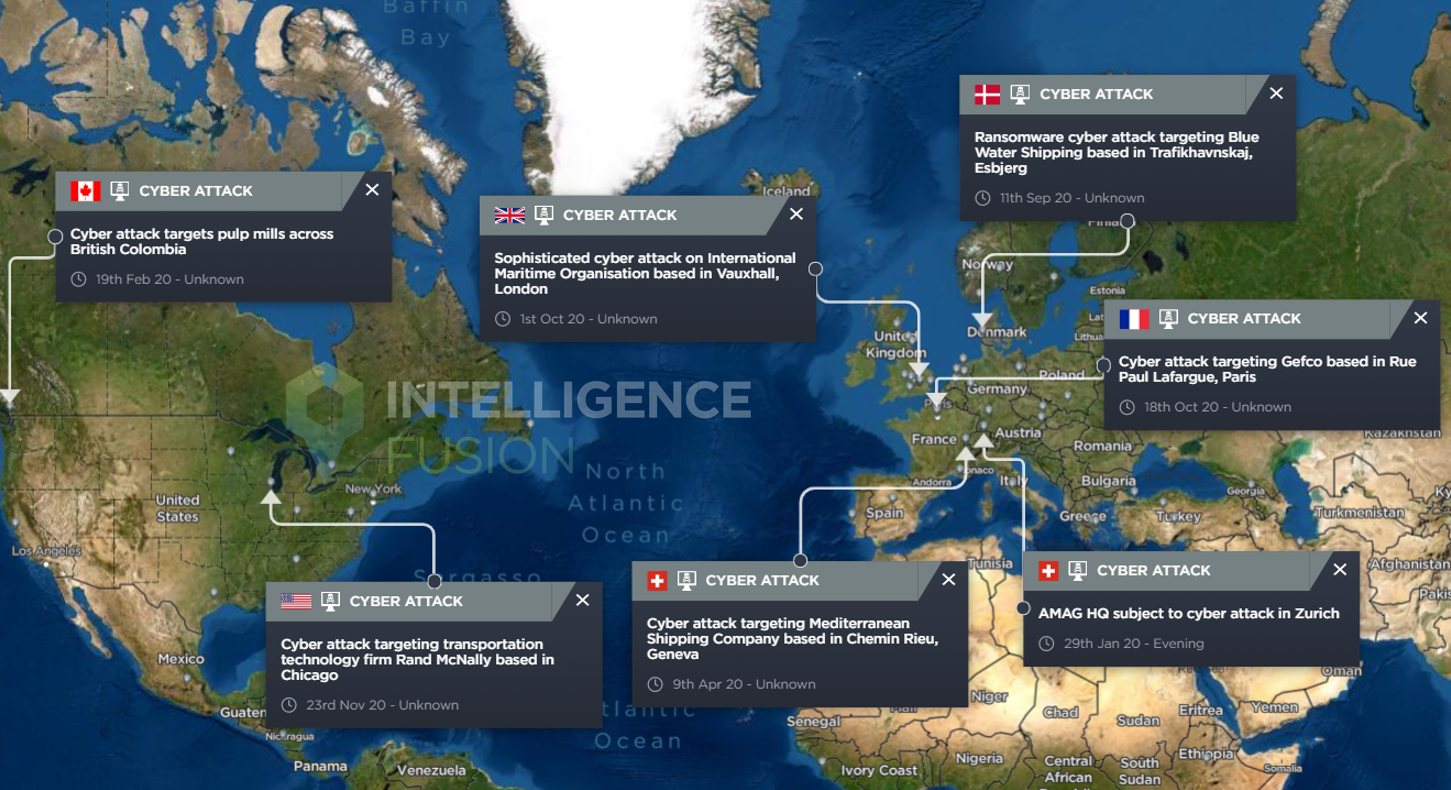How will South Korea’s new President respond to North Korea’s weapons programme?
As South Korea’s new President takes office on 10th May 2022 amid promises to bolster national security, he will be faced with a North Korean (DPRK) regime seemingly set on achieving nuclear weapons, and at a time of increased weapons testing. We take a look at how Yoon Suk-yeol may plan to deal with the North Korean threat, as well as how he may shape South Korea’s wider foreign policy going forward.
On 9th March the opposition People Power Party candidate Yoon Suk-yeol took victory over Lee Jae-myung of the ruling Democratic Party by a slim margin of less than one percent to become the next president of the Republic of Korea (ROK). A relative newcomer to politics Yoon came to prominence as a prosecutor, earning himself the nickname “The Angel of Death” after convicting both preceding conservative presidents Park Guen-hye and Lee Myung-bak on charges of corruption and bribery.
Domestically Yoon has promised to tackle a number of intransigent issues including soaring house prices and high youth unemployment. He has also controversially promised to abolish the Ministry of Gender Equality and Family and move the presidential office from the Blue House to the current defence ministry building for reasons of convenience and, according to some, better feng shui. He also comes to office at a time of increased weapons testing by the Kim regime in Pyongyang and as construction work is ongoing at the Punggye-ri Nuclear Test Site. No doubt with this in mind he campaigned on a hawkish foreign policy platform that could see significant changes to Seoul’s balancing act between China and the U.S. and adopt a far more robust stance towards the DPRK.
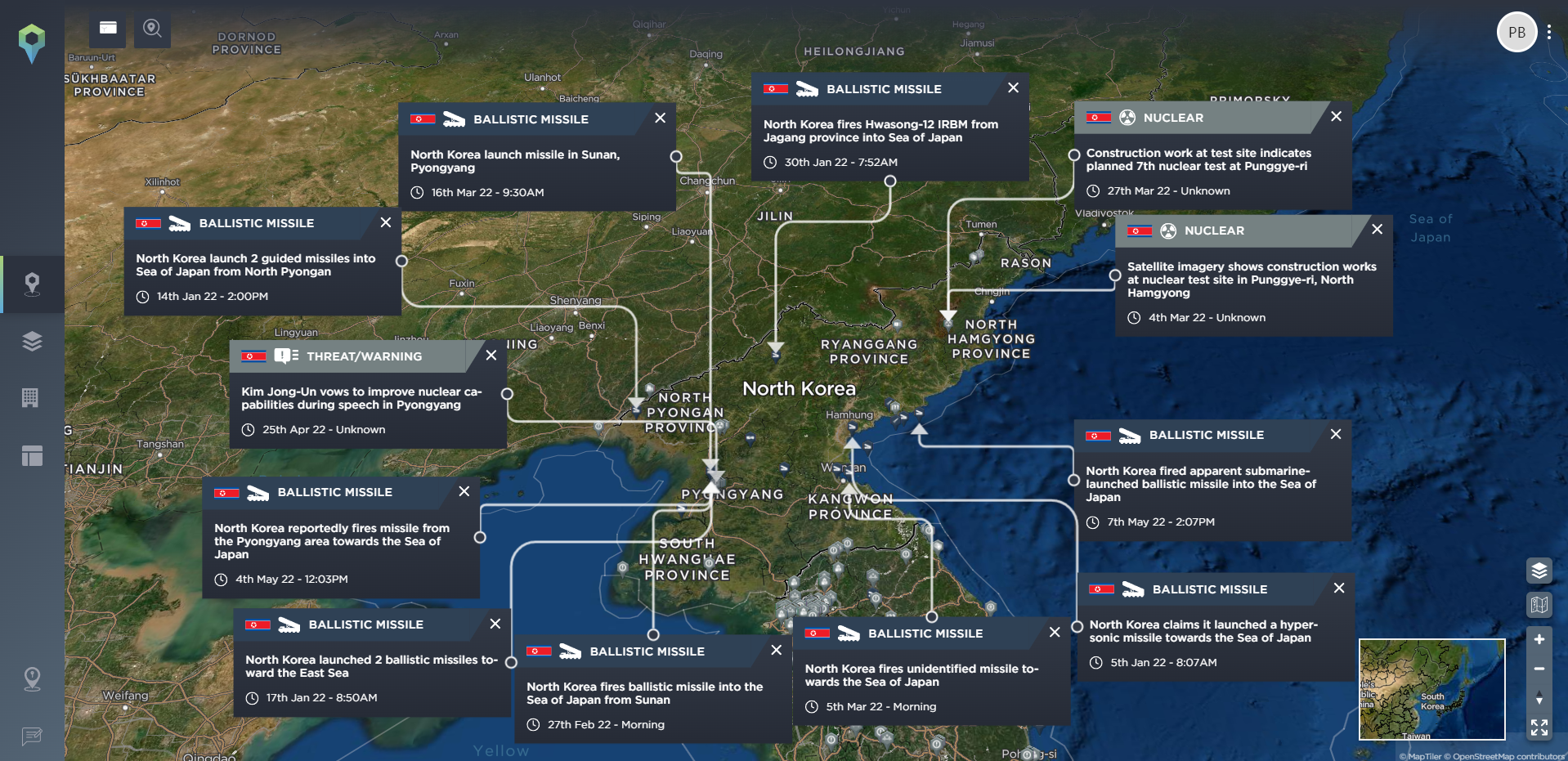
President Yoon comes to office at a time of increased nuclear and weapons development from the DPRK [image source: Intelligence Fusion]
Yoon has advocated a less conciliatory approach to inter-Korean relations than outgoing president Moon Jae-in, and has expressed a willingness to wield sticks as well as offer carrots. During his campaign and in a foreign policy outline released in March, Yoon declared his intention to bolster national security by enhancing the military and reinvigorating existing alliances while seeking greater engagement with other regional players. While his headline aims of the complete denuclearization of North Korea and a normalisation of inter-Korean relations are both standard fare and highly unlikely – especially given some of his other policies – his more detailed aims will no doubt goad the North Korean regime and to an extent China. The cornerstone of this policy appears to be the rebuilding of the ROK-U.S. alliance, including with the resumption of joint military exercises, talk of additional Terminal High Altitude Air Defence (THAAD) batteries, and strengthening of the extended deterrence offered by the U.S.
The election of a hawkish candidate and the increased missile testing by the DPRK over recent months once again raises the question of whether the ROK will pursue a nuclear deterrent of its own. In September of last year Yoon stated that he would request the redeployment of U.S. nuclear weapons to the peninsula, a subject he may well raise when he meets president Joe Biden later this month. Such a deployment has majority support amongst the South Korean public according to recent polling, although the chances of U.S. nuclear weapons returning to the ROK are slim due to cost concerns if nothing else. Some analysts believe the air-launched B61-12 tactical nuclear gravity bomb could be stationed on the peninsula for a comparatively low cost and be sufficient to deter the DPRK. However, this would certainly raise Beijing’s ire and would probably be far too bold a move for the Biden administration’s middle of the road approach.
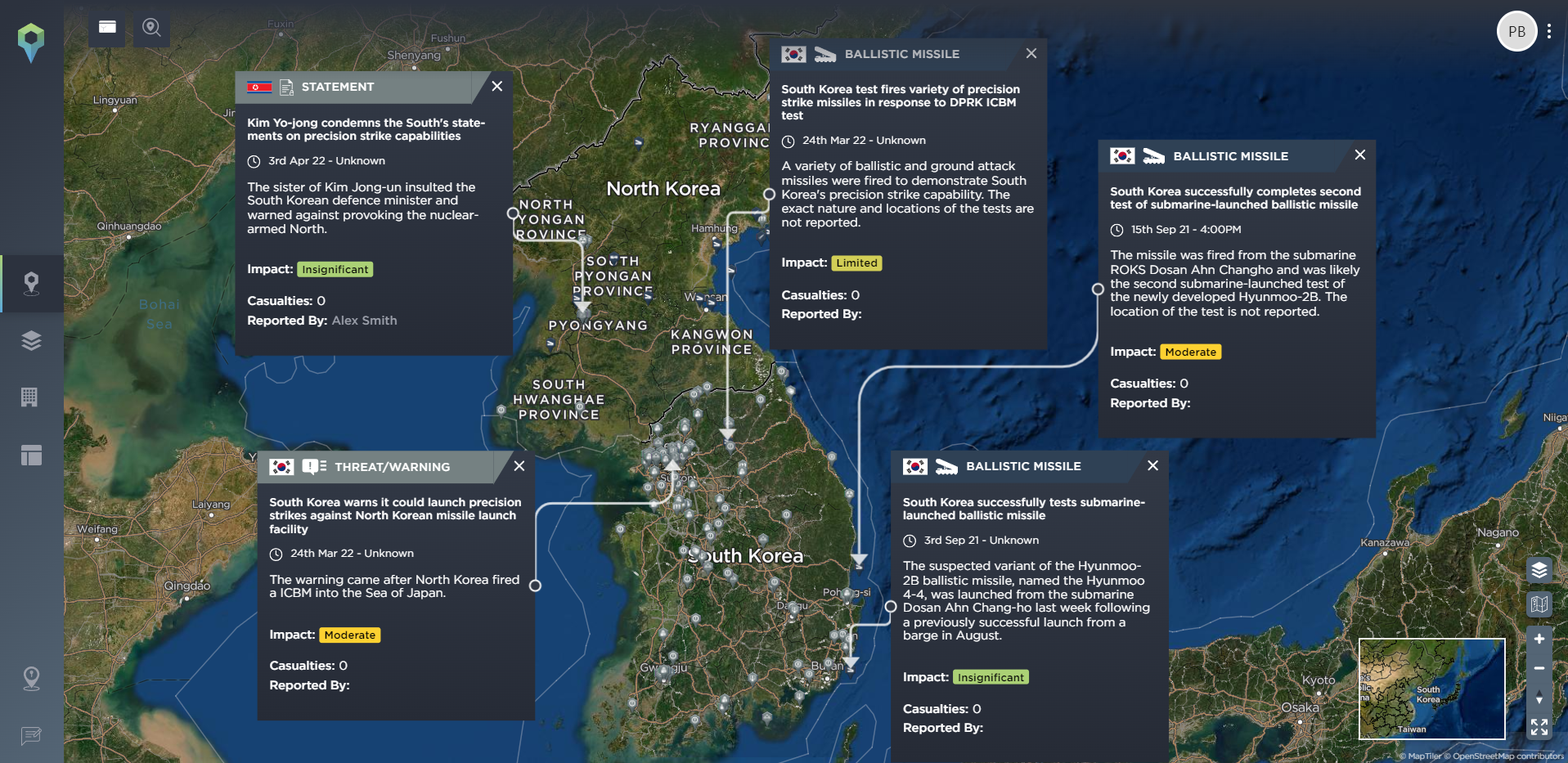
Recent South Korean weapons tests and rhetoric around a potential pre-emptive strike [image source: Intelligence Fusion]
Should the nuclear deterrent issue come to the fore and the U.S. refuse it is difficult to determine how far Yoon could be willing to push the issue or if South Korea really would go ahead with its own weapons programme. Recent mention of the ROK’s conventional pre-emptive strike capability against the North was met with derision by the sister of the North Korean leader, Kim Yo-jong. Kim, having previously referred to the South Korean defence minister Suh Wook as a “senseless and scum-like guy” said that the South Korean military would face a “miserable fate little short of total destruction and ruin,” if they attempted a preemptive strike against the DPRK. Such talk, along with the increased missile testing by the DPRK could make a nuclear programme an easy sell for Yoon should he push for it. Support is already strong for such a programme amongst the ROK population, and while the ROK already has a well developed civilian nuclear infrastructure, recent Submarine Launched Ballistic Missile (SLBM) tests show Seoul could likely achieve not only nuclear warheads but a secure second-strike capability in a comparatively short timeframe. Doing so would no doubt enrage Pyongyang and Beijing, and Washington may find itself having to find some solution to address its ally’s concerns without provoking either the rogue state that is the cause of those concerns or its own strategic competitor, China.
One aspect of Yoon’s policies that would be most welcome in Washington however would be his proposed rapprochement with Japan. He has already dispatched a diplomatic mission to meet with Japanese Prime Minister Fumio Kishida in April, expressing a wish to reset relations and find solutions to issues maring bilateral relations such as the use of Korean forced labour during World War II. Yoon has billed this as no less than “Kim Dae-jung-Obuchi 2.0” although all parties will no doubt hope that it meets with greater success than its predecessor.
Yoon has also specified the Quad (U.S., India, Japan and Australia) security partnership for potential involvement. Greater engagement in the security architecture of the Asia Pacific would be a significant step for South Korea, which has practised a more spoke-and-wheel security arrangement with Washington rather than working alongside other regional players and U.S. allies such as Japan. While initial involvement would centre on issues such as climate change and technological cooperation it could lay the foundation for future military involvement in the partnership.
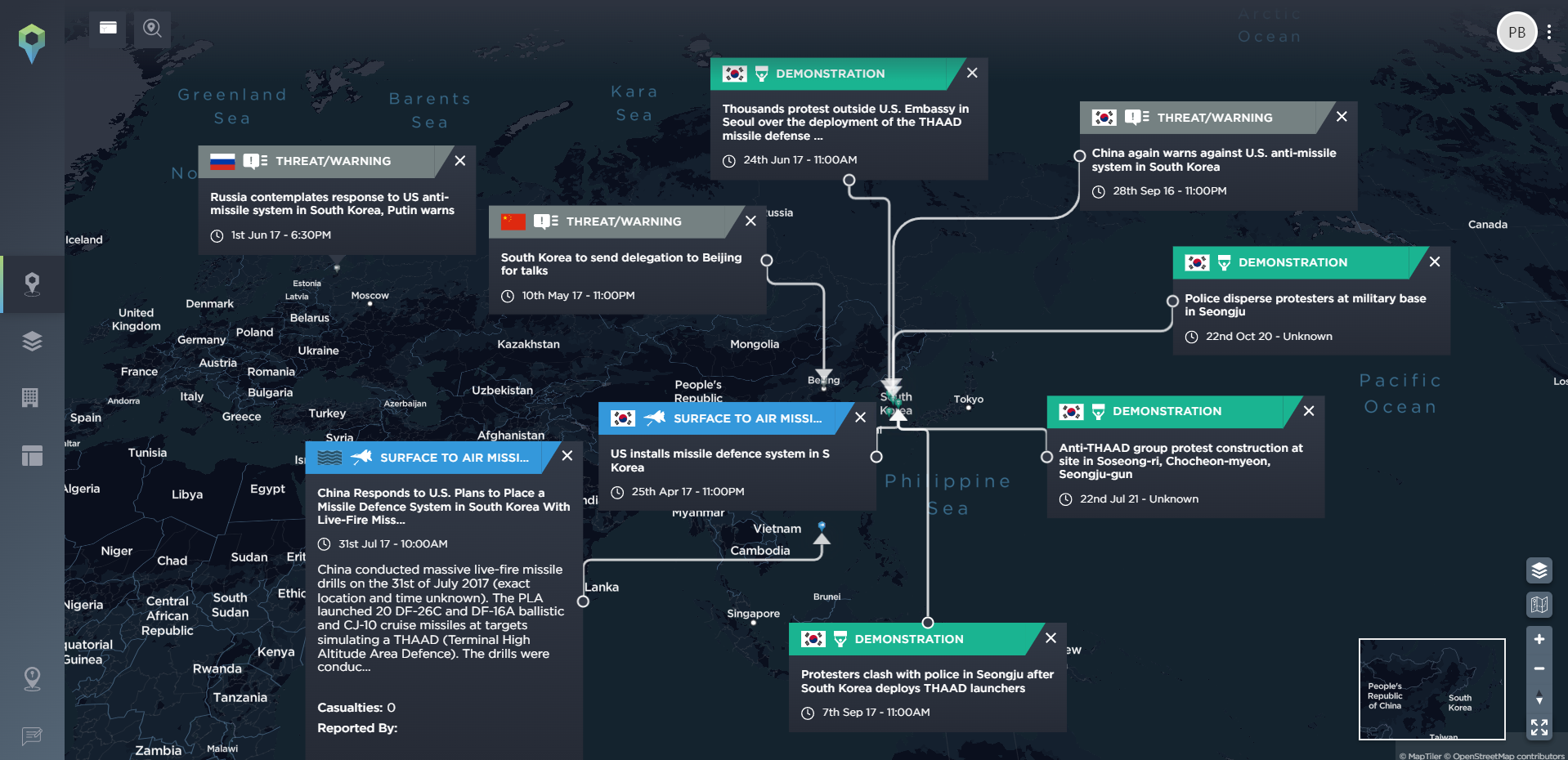
The deployment of the THAAD missile system caused great controversy in 2017 [image source: Intelligence Fusion]
Even without the nuclear issue or involvement in the Quad the possibility of enhancing the THAAD system could set Yoon on a collision course with China. When the system was originally deployed in 2017 it caused a rupture in relations with China, who see the system’s radars as a threat to their own national security. South Korean businesses in China were boycotted and relations were only improved when president Moon issued his so-called “three no’s”. More THAAD batteries would break one of these, while integrating this missile defence with the U.S. and forming a trilateral alliance with the U.S. and Japan, should those things occur, would breach the other two. It would be a generous interpretation by Beijing’s standards not to see increasing THAAD, involvement in the Quad and potentially improving relations with Japan as breaching these promises and constituting a combined effort to contain China.
Ultimately Yoon’s proposed foreign policy marks a shift from the balancing act of previous administrations as they tried to manage their relationships with their largest trading partner and neighbour China on the one hand, and their long term security guarantor the U.S. on the other. If Yoon delivers on his rhetoric he could put the Biden administration in a tough spot, particularly over the issue of nuclear weapons. How much he will be able to achieve remains to be seen, and with such a narrow election win and the National Assembly in the hands of the opposition he could face significant roadblocks. His desire to tackle domestic issues and liberalise the economy could well run afoul of his security policies though, especially if China decides to weaponize its economic weight again.
As President Yoon settles into his role and begins implementing his foreign policy, we’ll continue to monitor cross-Korean relations, including DPRK missile tests and nuclear development, as well as the ROK’s relationship with its Asian neighbours and US allies. For breaking news and access to over 1 million fully verified historical incidents, book a demo of the Intelligence Fusion platform today to see how it can mitigate physical security threats in your business.
